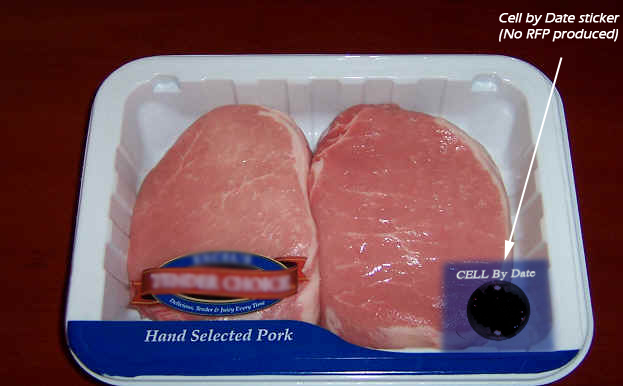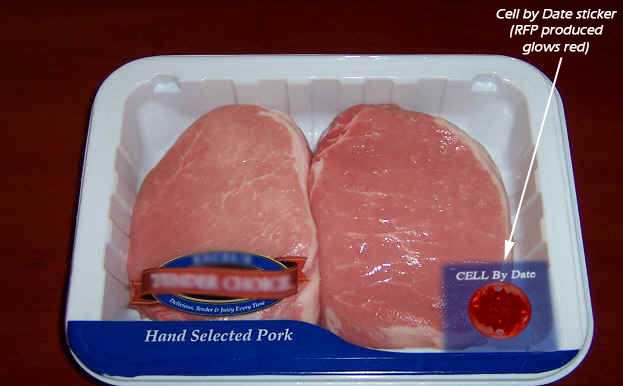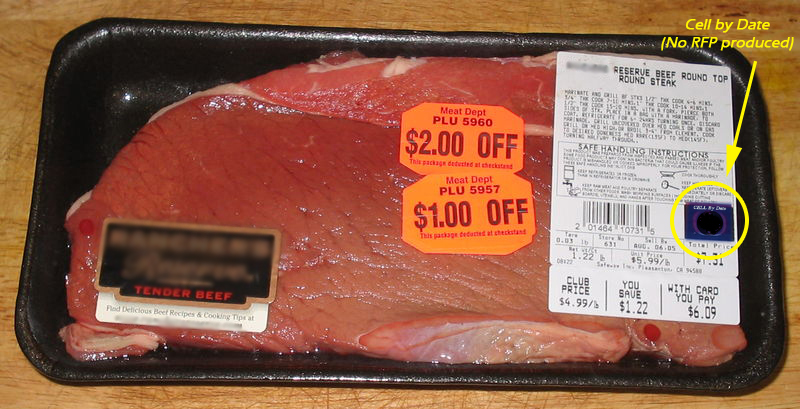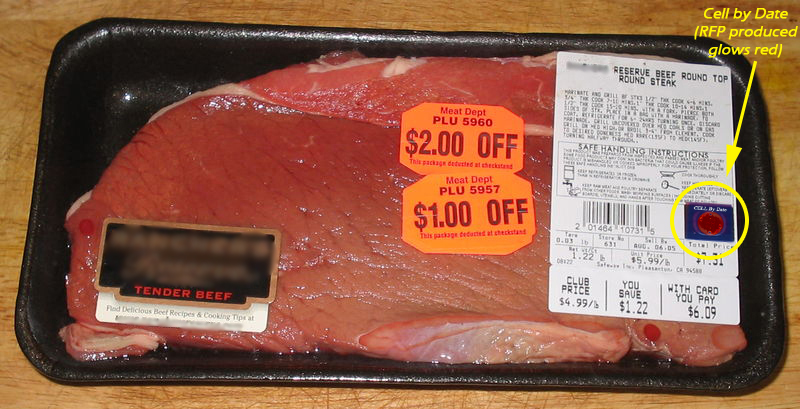Imperial/Cell by Date/Conclusion
From 2007.igem.org
m (→Cell by Date: Conclusion) |
|||
| Line 38: | Line 38: | ||
|style="background:#ffffcc"|Outputs | |style="background:#ffffcc"|Outputs | ||
|<center>System should give a visual signal to indicate level of thermal exposure where beef is off</center> | |<center>System should give a visual signal to indicate level of thermal exposure where beef is off</center> | ||
| - | |'''<font color=red> | + | |'''<font color=red>Not Determined- DSred Express can be substituted for GFPmut3b</font>''' |
|- | |- | ||
|style="background:#ffffcc"|Activation Energy | |style="background:#ffffcc"|Activation Energy | ||
Revision as of 02:35, 27 October 2007

Cell by Date: Conclusion
| Inputs | 4°C shows negligible activity while 37°C shows highest fluorescence | |
| The system responded to stepping of temperature up and down | ||
| Outputs | Not Determined- DSred Express can be substituted for GFPmut3b | |
| Activation Energy | Activation energy of system was calculated to be 1.5kJ/mol | |
| Health Regulations | ||
| Response Time | Yes system increases significantly after 1 hour | |
| Lifespan | Not Determined- Packaging method that prevents evaporation |
Cell by Date is exemplary in how Synthetic Biology can be integrated into our everyday lives. If the system was properly coupled to the spoilage of meat, it could mimic the function of industrial level devices in the meat industry, all at a fraction of the cost. By constantly monitoring for a break in the cold chain, CBD will inform consumers of any mishandling of the product, and whether or not the meat has been exposed to inappropriate storage/transport conditions.
On a bigger note, Cell by Date could be extended beyond the meat industry unto cold chain management iteself, targetting, in particular, pharmaceuticals. This is evident in the global supply of vaccines, especially to those in distant clinics in hot climates which are served by poorly developed transport networks. Under these circumstances, a break in the cold chain could severely compromise the efficacy of the vaccines, and disrupt the administering of a vaccination campaign that could bring more harm than good. As many vaccines are particularly temperature-sensitive, Cell by Date may in fact be more appropriately suited to such products that require a more sensitiive monitoring device like CBD.
In conclusion, even though not fully characterised, promising progress has been made, in which our system shows that even without tweaking the initial design, Cell by Date has a great potential that is just waiting to be exploited.
Future Work
Extending the life of the reaction
A major constraint of CBD is its short lifetime. The cell-free extract that is currently used can only support it for a maximum of a few days, or for the production of 12mg of protein whichever comes first. A good approach to further this project would thus be to develop and optimise the cell extracts such that is is capable of expression over the lifespan of the product that it is monitoring.
Packaging
Packaging is also another aspect of Cell by Date that can be further developed. Being cell-free, it is generally easier for CBD be embedded on food packaging, which calls for an efficient packaging method that is transparent (for the person to be able to see the fluorescent protein), but also well isolated from the actual food source (to avoid contamination).
Two important factors however need to be taken into consideration. The first is the fact that the cell extract requires oxygen for the maturation of GFP. It is indetermined of the amount of oxygen required at present, and more tests would need to be performed to understand the conditions of a limited oxygen environment.
The other factor is evaporation. This is a huge factor, and posed a lot of problems for us over the course of experimentation as it affected the performance of the reaction mixture. The packaging must therefore be able to sustain the volume of the reaction mixture for the lifespan of the product as to ensure its efficacy as a temperature-time integrator.



